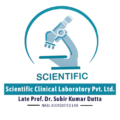Departments
Microbiology & Serology
Overview:
Microbiology & Serology
Our Microbiology & Serology department is dedicated to the detection and identification of microorganisms, including bacteria, viruses, fungi, and parasites, in clinical samples. We also perform serological tests to detect antibodies and antigens related to infectious diseases, providing crucial information for diagnosis, treatment, and prevention.
A blood culture test is performed to detect and identify bacteria or fungi in the bloodstream. It helps diagnose bloodstream infections and guide appropriate antibiotic or antifungal treatment.
Serological tests detect antibodies or antigens in the blood, indicating a response to an infection or presence of a pathogen. Microbiological tests involve the culture and identification of microorganisms directly from clinical samples.
The turnaround time varies by test. Blood and urine cultures typically take 24-48 hours for preliminary results, while stool cultures may take several days. Serological tests usually have a faster turnaround time, often within 1-2 days.
Preparation depends on the specific test. For blood cultures, it is essential to avoid antibiotics before the test unless directed by your doctor. For urine cultures, it is crucial to collect a midstream sample. Always follow the specific instructions provided by your healthcare provider.
Microbiology
Blood Culture
Detects bacterial or fungal infections in the bloodstream.
Urine Culture
Diagnoses urinary tract infections (UTIs).
Throat Culture
Identifies bacterial infections in the throat, such as strep throat.
Stool Culture
Detects pathogens in the gastrointestinal tract.
Serology:
HIV Antibody Test
Detects antibodies to HIV.
Hepatitis B Surface Antigen (HBsAg) Test
Identifies active hepatitis B infection.
Rheumatoid Factor (RF) Test
Measures antibodies for diagnosing rheumatoid arthritis.
VDRL Test
Screens for syphilis by detecting specific antibodies.
